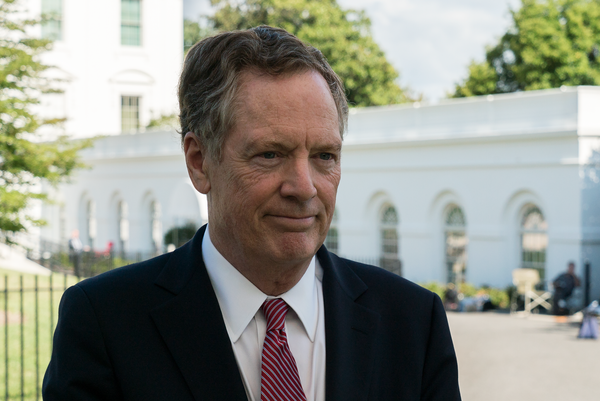President Trump faces a choice that will determine the fate of his trade vision aimed at renewing American manufacturing. Given his ambitious goals, he should rule out installing this or that Wall Street honcho at the US Treasury. The choice who will best reflect Trump’s priorities is Robert Lighthizer, the brilliant, energetic lawyer who served as Trump’s US trade representative during his first term (and as Ronald Reagan’s deputy trade representative).
In 2016, Trump won over a decisive share of the working-class vote by criticizing lousy trade deals that had empowered China and carved a swath of destruction across the heartland. As his trade representative, Lighthizer began to reverse the damage by renegotiating NAFTA and protecting American industrial capacity from Chinese encroachments. Once passé, manufacturing revival came to form a new bipartisan consensus, with the Biden administration retaining and even widening Trump’s tariffs against Chinese goods.
The economy and trade were equally central to Trump’s 2024 campaign, which saw him promote a universal tariff (with heftier levies on the People’s Republic) as well as tax breaks for firms that manufacture in the homeland. Put another way: Far from abandoning his 2016 trade program, Trump doubled and tripled down on restoring Alexander Hamilton’s model of political economy—a model that turned America into an industrial powerhouse.
Without Hamilton’s efforts, Britain would probably have succeeded in doing to the young American republic what it would go on to do to India: locking the country into the position of an abundant resource pool and captive market for British manufactures. Distrusting urbanization and mechanization and bound to their peculiar institution, some Southern ideologues would have been happy with that fate—a position ironically replicated much later by neoliberal Democrats and Republicans who insisted that America didn’t need manufacturing, that the nation would thrive on finance, high tech, and services alone.
Here’s the thing, though: While they are surely down, the neoliberals are by no means out. On the contrary, they still wield a vast influence, including and especially in the GOP establishment. To finish the job in his second term, then, the president needs someone who can articulate and defend the Trumpian trade agenda, and who can pursue its policy goals in an organized and systematic way.
“The nation has benefited from secretaries of the Treasury who notably weren’t Wall Street men.”
In previous moments such as this, the nation has benefited from secretaries of the Treasury who notably weren’t Wall Street men. Hamilton himself, of course, but also John Connally, Richard Nixon’s secretary of the Treasury, who managed the transition of the US dollar away from the gold standard; and James Baker, who oversaw the 1986 tax reform and helped the United States see off the Japanese trade threat.
Hamilton, Baker, and Connolly weren’t mere cheerleaders for the financial sector, but dealmakers who knew how to translate their respective presidents’ economic visions into successful legislation and trade deals. That also describes the sort of Treasury secretary that Robert Lighthizer is poised to be.
As it is, the president faces an uphill battle to do the big things he wants to do, and which a majority of Americans elected him to do. A universal tariff and tax rates pegged to whether firms manufacture domestically—these measures will be hard to push through with executive orders alone. Only by cementing his political-economic vision in legislation, based on the commanding mandate voters handed him, can Trump finally slay the beast of neoliberal globalization.
Robert Lighthizer knows Capitol Hill inside and out, and as the renegotiated NAFTA attests, he is a master dealmaker. His pro-labor bona fides means that he can, if necessary, overcome resistance from neoliberal Republicans by striking deals with tariff- and manufacturing-friendly Democrats. No Wall Street man, however capable, can succeed at this—if he even wants to. Leading contender Scott Bessent, for example, is now making pro-tariff noises, but after having vowed to “save international trade” from Trump. Then, too, the wider Trumpian protectionist agenda can’t be implemented via the office of the trade representative alone. It needs a champion at the Treasury.
Attacking neoliberal globalization and promoting tariffs, Donald Trump has rallied to America’s battered real economy—the one in which Americans build useful stuff, or used to anyway. To defend the real economy from further erosion, and ensure its advancement in our century, Trump needs Lighthizer at Treasury.
